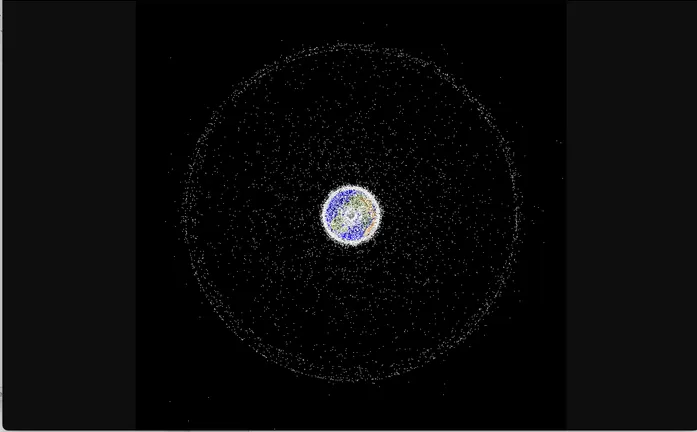Boston University students have once again proven their innovative and forward-thinking mindset by proposing a groundbreaking solution to the growing issue of space debris. In a recent Collegiate Space Competition, the students presented a plan to use cubesats to push defunct satellites from geosynchronous Earth orbit to a graveyard orbit. This proposal has not only won them the competition, but it has also caught the attention of the entire space industry.
Space debris, also known as space junk, is becoming a major concern for space agencies and companies around the world. With an increasing number of satellites being launched into orbit, the risk of collisions and the creation of more debris is also on the rise. This poses a threat to active satellites and spacecraft, as well as future space missions. It is estimated that there are currently over 500,000 pieces of space debris orbiting the Earth, and this number is only expected to grow.
The concept proposed by the Boston University students involves using small satellites, known as cubesats, to maneuver and push defunct satellites into a graveyard orbit. Geosynchronous Earth orbit, or GEO, is a highly sought-after orbit for satellites due to its stability and position above the Earth’s equator. However, when a satellite reaches the end of its life, it must be moved to a higher orbit, known as a graveyard orbit, to avoid collisions with active satellites. This process is typically done using the remaining fuel on the satellite, which can be costly and inefficient.
The use of cubesats to perform this task is a game-changer. These small satellites, measuring only 10x10x10 centimeters, are much more cost-effective and can be launched in large numbers. They can also be controlled remotely, making them ideal for this type of mission. The Boston University students have proposed using a swarm of cubesats to surround and push the defunct satellite towards the graveyard orbit, eliminating the need for any remaining fuel on the satellite. This not only reduces the cost and resources needed for the maneuver, but it also ensures a safer and more efficient process.
The idea of using cubesats for space debris management is not entirely new, but the approach proposed by the Boston University students is revolutionary. It has the potential to significantly reduce the amount of space debris in GEO, making it a much safer and sustainable orbit for future missions. This proposal has garnered praise and recognition from industry experts, with many hailing it as a game-changing solution to the growing space debris problem.
The Collegiate Space Competition, organized by SpaceNews, is an annual event that challenges college students to come up with innovative solutions to real-world space problems. This year’s competition saw entries from top universities around the world, but it was the Boston University team that stood out with their groundbreaking proposal. Their win not only showcases the talent and ingenuity of the students but also puts Boston University at the forefront of space technology and innovation.
The success of the Boston University team in this competition is a testament to the university’s commitment to fostering a culture of innovation and pushing the boundaries of what is possible. It also highlights the importance of involving young minds in finding solutions to global challenges, such as space debris. With the growing interest and investment in space exploration and technology, it is crucial to have fresh perspectives and ideas, and the Boston University students have proven that they are more than capable of delivering just that.
In conclusion, the proposal put forth by the Boston University students to use cubesats for space debris management is a game-changer in the space industry. It has the potential to significantly reduce the amount of space debris in GEO and make space missions safer and more sustainable. The students’ win in the Collegiate Space Competition is a well-deserved recognition of their groundbreaking idea and a testament to the university’s commitment to innovation. This is just the beginning, and we can only expect to see more groundbreaking ideas and achievements from the talented students of Boston University in the future.

